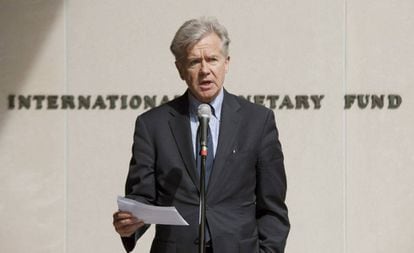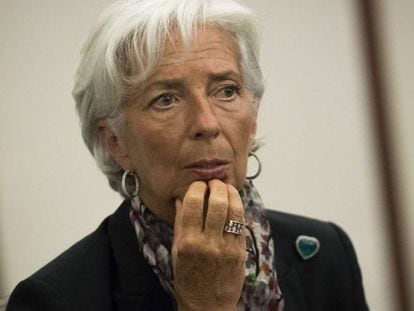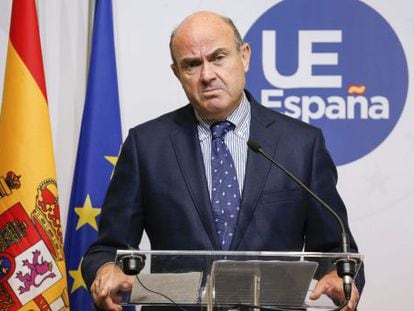IMF boosts Spain’s short-term economic growth forecast despite nine-month political stalemate
Strong second quarter economic performance increases international optimism over short-term recovery


The International Monetary Fund (IMF) is to boost its 2016 economic forecast for Spain this autumn, after the economy posted strong growth in the second quarter.
The fund’s analysts in July revised down their 2016 growth forecast for Spain to 2.1%, two tenths of a percentage point lower than the figure they mooted in April.
But the IMF on Thursday backed away from that negativity after Spain’s GDP grew 0.8% in the second quarter this year – a figure which the country’s economy had also notched up in the previous three quarters.
The Spanish government’s growth prediction for next year is 2.4%, and is banking on expansion of 3% at the close of this year
“I can tell you we think real GDP growth in the second quarter of this year was stronger than expected and this will be reflected in the revised projections to be released with the World Economic Outlook, which will be released at the time of the Annual Meetings in October,” IMF spokesman Gerry Rice said during a press conference.
While declining to comment on Spain’s political crisis, Rice said Spain's strong economic recovery was continuing and this had “been helped by past reforms as well as some helpful external tailwinds.”
But Rice displayed the IMF’s customary caution about Spain, noting potential future growth was threatened by weak productivity expansion, debt overhang in some sectors and high structural unemployment.
“Over the medium-term we project GDP growth to moderate to its potential rate of around 1.5 percent,” Rice said.
The IMF in July cut its 2016 growth forecasts for Spain to 2.1%, compared to the 2.3% it had stated in April.
The Spanish government’s own prediction for next year is currently at 2.4%, while the administration is also banking on growth of 3% at the close of this year.
In its July update to its World Economic Outlook, the IMF stated that it was detecting a slight improvement in the global economy at the start of 2016.
However, the United Kingdom’s referendum vote to leave the UK – or Brexit, as it is widely known – had turned the situation on its head, said the report. The vote had “thrown a spanner in the works” of recovery, said Maury Obstfeld, the director of the IMF’s research department.












































